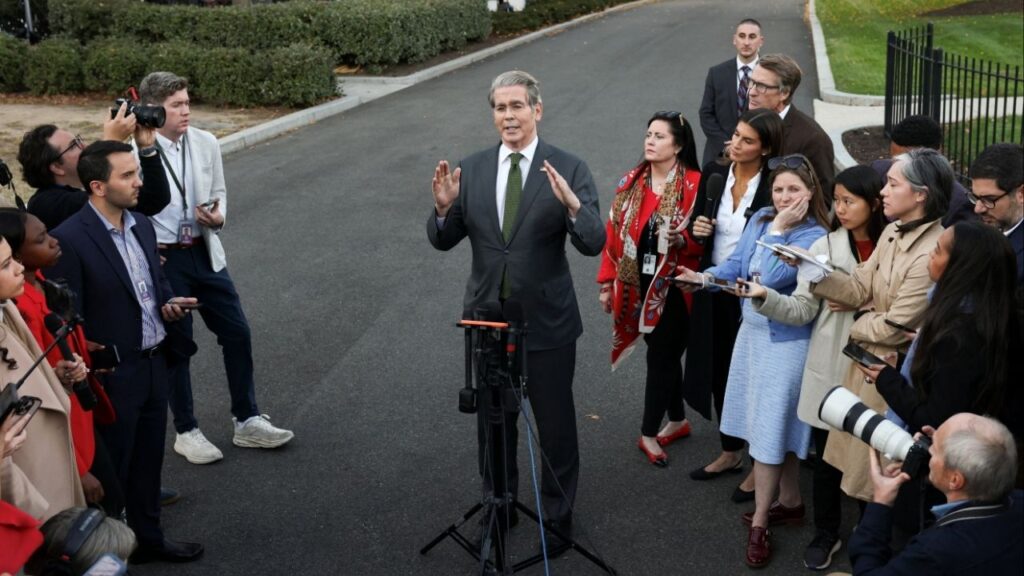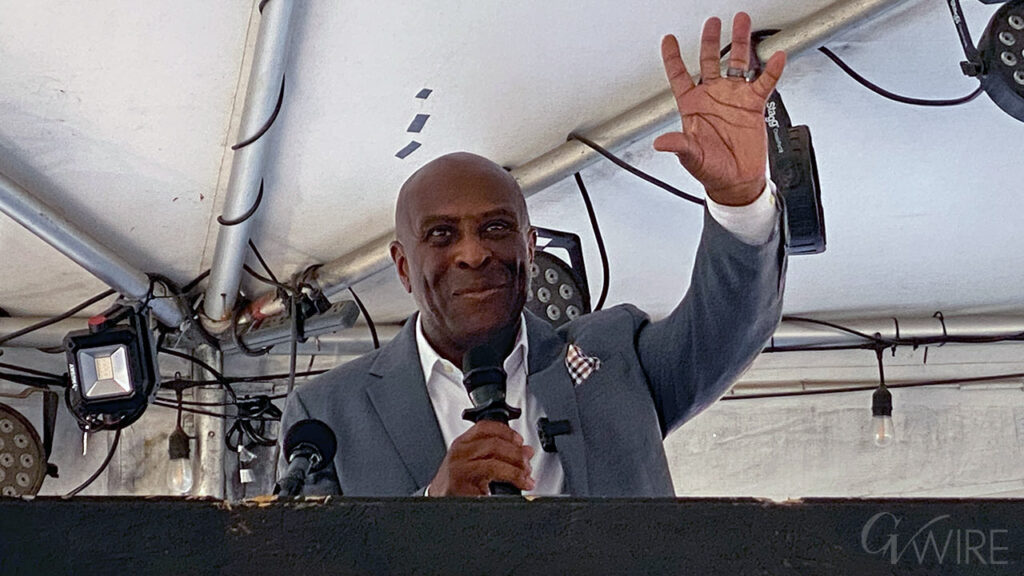Chairman U.S. Rep. Jodey Arrington (R-TX) attends a House Budget Committee meeting as the committee votes to advance U.S. President Donald Trump's sweeping tax-cut bill in a rare Sunday night session, on Capitol Hill in Washington, D.C., U.S., May 18, 2025. REUTERS/Annabelle Gordon

- House Republicans push Trump’s tax bill forward despite internal divisions and Moody’s downgrade over inaction on $36.2 trillion debt.
- Hardliners demand Medicaid cuts and repeal of green credits; moderates warn changes could harm voters ahead of 2026 elections.
- Tax plan faces Wednesday committee test; critics say it could add $3–5 trillion to national debt over the next decade.
Share
|
Getting your Trinity Audio player ready...
|
WASHINGTON (Reuters) – Republicans who control the U.S. House of Representatives will try to nudge President Donald Trump’s sweeping tax bill toward passage this week, despite a running battle over spending cuts and tax breaks that threatens to shatter their fragile majority.
They pushed ahead even after Moody’s agency stripped the U.S. federal government of its top-tier credit rating, saying that multiple administrations and Congress had shown no political will to address the nation’s growing $36.2 trillion debt pile. U.S. stock futures suggested a down day in the markets on Monday, the first trading day following Moody’s move.
The legislation, which had been stalled for days, advanced in a rare Sunday night meeting of the House Budget Committee when four hardline conservatives voted to move forward, as they pressed for deeper spending cuts in closed-door talks with Republican leaders and White House officials.
It will face its next test at 1 a.m. ET (0500 GMT) Wednesday when the House Rules Committee weighs whether to allow it to move forward for a vote in the full chamber.
Republicans remained divided over major aspects of the bill, including cuts to Medicaid and limits on the deductability of state and local taxes.
“We’ve still, this week, got a number of other meetings we’re going to have to have with different ends of our conference. You know, everybody from the moderates to the ultra conservatives and everybody in between, because there’s so many important parts of this bill,” No. 2 House Republican Representative Steve Scalise of Louisiana told CNBC on Monday.
Nonpartisan analysts say the bill would also add $3 trillion to $5 trillion to the nation’s debt over the next decade.
House Speaker Mike Johnson is pushing for the chamber to pass the legislation and send it on to the Senate before the May 26 U.S. Memorial Day holiday.
Trump’s Republicans hold a 220-213 majority in the House and are divided over how deeply to slash spending to offset the cost of the tax cuts. So far the Republican-controlled Congress has not rejected any of Trump’s legislative requests.
Hardline conservatives continue to demand deep spending cuts to the Medicaid healthcare program for lower-income Americans and the full repeal of green tax credits, moves that are opposed by more moderate Republicans who say such changes will hurt working-class voters and farmers whose votes they will need in the 2026 midterm elections.
Spending cuts already proposed in the legislation would kick 8.6 million people off Medicaid, according to the nonpartisan Congressional Budget Office.
Medicaid Work Requirements
Republican lawmakers are considering implementing new work requirements for people enrolled in Medicaid, with their debate focused on when those should kick in, Republican leadership aides told reporters on Monday.
Republicans are also at odds over the deductibility of state and local taxes, or SALT, an issue of great significance to a handful of incumbents from states such as New York and California that are critical to the party’s narrow House majority.
The hardliners insist that deeper spending cuts are needed to offset Trump’s tax cuts.
“The bill does not yet meet the moment,” said Representative Chip Roy, one of four prominent hardline conservatives who voted “present” on Sunday night to let the bill advance.
“We can and must do better before we pass the final product,” the Texas Republican said in a social media post.
The measure would extend Trump’s 2017 tax cuts, his signature first-term legislative achievement, reduce taxes on some tips and overtime income, boost defense spending and provide more funds for his border and immigration crackdown.
But Johnson and Treasury Secretary Scott Bessent dismissed the rating cut’s significance in Sunday television interviews, with the speaker pointing to the credit rating agency’s action as proof that Congress needed to pass the Trump bill quickly.
Whatever the outcome of the factional warfare in the House, Senate Republicans say they intend to alter the bill if it manages to get out of the lower chamber.
—
(Reporting by David Morgan; Editing by Scott Malone, Toby Chopra and Alistair Bell)



















